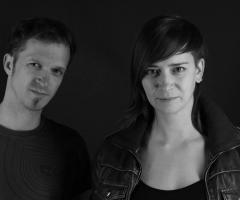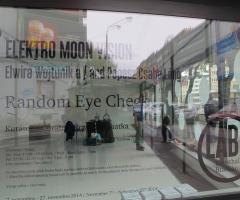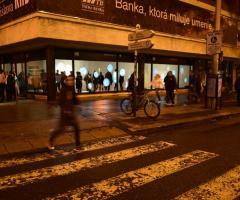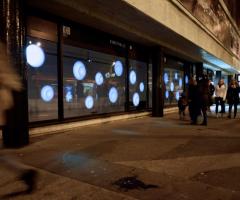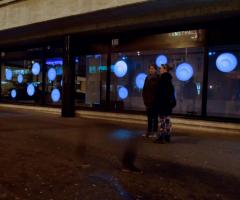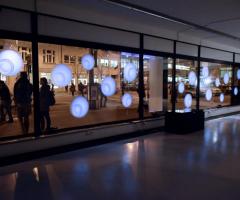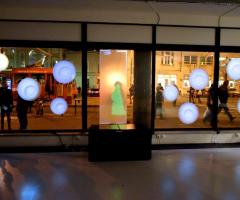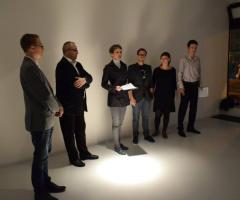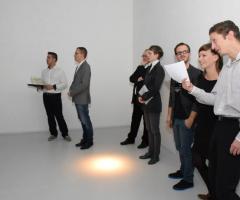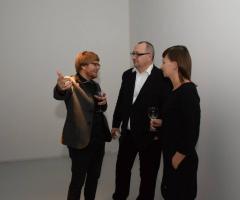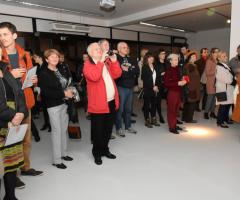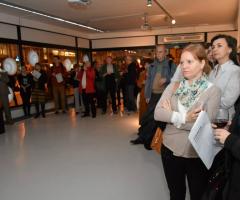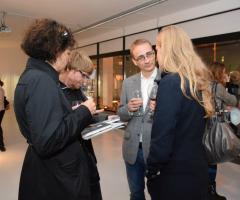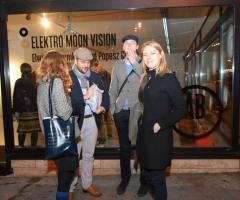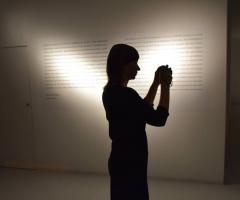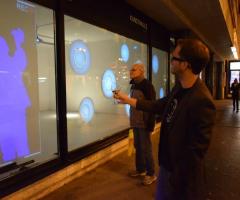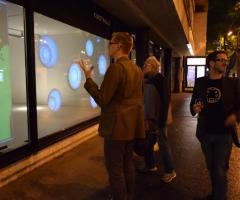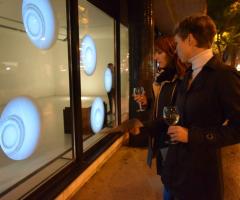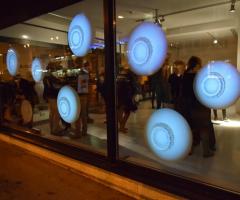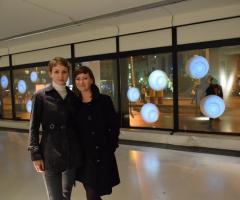ELEKTRO MOON VISION: Random Eye Check (REC)
ELEKTRO MOON VISION tvorí poľsko-maďarská dvojica: Elwira Wojtunik a Popesz Csaba Láng. Ich multimediálne projekty interaktívneho charakteru patria medzi to progresívne, čo vytvára stredoeurópsku scénu súčasného vizuálneho umenia.
Curator: Krzysztof Siatka
Kunsthalle LAB
Opening: 6th November 2014
Duration: 7th November - 27th November 2014
Elektro Moon Vision | Elwira Wojtunik a Popesz Csaba Láng:
REC | Random Eye Check
The aim of the REC project installed in the glass facade of the Kunsthalle Bratislava is to create an impression of permanent surveillance. Models of cameras are directed toward the windows physically dividing the area of the gallery from the outside street. The observation angle of the camera lens changes continuously and creates an impression that the camera lens is closely watching the people passing by. Thus, the cameras enter into a relation of dependence and interact with random viewers passing by, who are, at least to some extent, interested in this installation. The REC project’s setting represents a typical element of the early modern architecture – a glass curtain wall. The glass facade dematerialises the matter of the building and introduces an optical link between the public square and an institution. It represents a symbol of modern utopia, but it can also serve as a ‘proto-instrument’ for immediate and effective study of social behaviour. Moreover, the REC installation is set in a cultural context, in which surveillance over the society is no exception. Over time, the development of the phenomenon of surveillance and protests against obtrusive forms of control have led to the formation of socio-psychological theses suggesting that street crime should not be addressed by installing fully operational monitoring equipment, but rather by the mere presence of surveillance systems. In theory, a broken camera can still serve its purpose within the system of permanent oversight. Theoretically, it enforces compliance with the rules generally accepted as optimum social behaviour. But as the time has showed, the situation is radically changing. Installing several security cameras along every street or radars covering each kilometre of the road leads to a situation where obedience and an attitude of unconditional adherence to the imposed rules are gradually replaced by indifference to the accepted instruments of oversight, control and surveillance. The situation described above anticipates the betterment of society through efforts to deter citizens from committing a crime. But if – despite all these measures – an individual commits a crime, the surveillance system records his or her actions and sooner or later leads to condemnation of the anarchist. At present, especially on the internet, surveillance over every activity is not imposed to attain theoretical safety, but in order to meet economic objectives – to obtain data which facilitate more efficient sales strategies and adjustment of product features to our rational needs. Apparently, the today’s society is ready to embrace many forms of surveillance, especially those which do not impose limits on the society but bring about more convenience. Whether we like it or not, we engage in a daily interaction with real or virtual methods of gathering data about our lives. Random Eye Check perfectly illustrates this modern system of dependence. At the end of the day, you don’t really need to love art to become the focus of an artistic work. Likewise, the monitoring equipment does not necessarily need to be real to create an atmosphere of control. Sometimes a mere impression of its existence will do.
Krzysztof Siatka
exhibition curator ELEKTRO MOON VISION
_____
Photo credit: Zuzana Godálová
Partner of the exhibition: Poľský inštitút Bratislava
Media reports:



